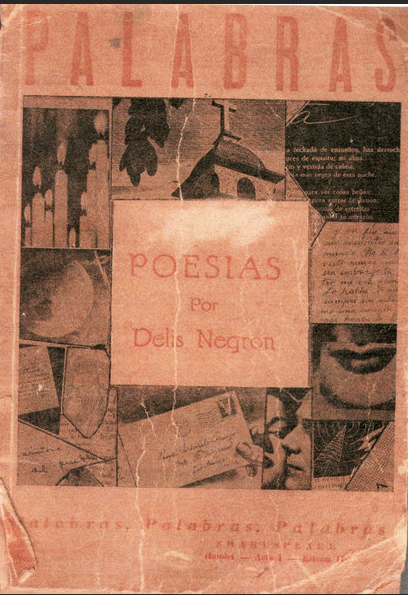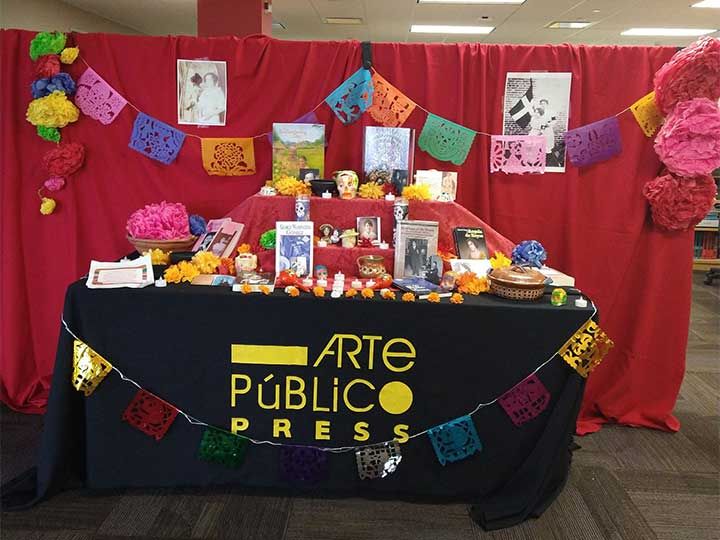

The U.S. Latino Digital Humanities (USLDH) Center at the University of Houston is like no other digital humanities space in the nation. It is housed in the second most diverse campus in the nation and under the umbrella of Arte Público Press, an imprint which specializes in literature written by Latina/Latino voices in the United States. One of its foremost principles, which emerged from the first Recovering the U.S. Hispanic Literary Heritage Conference at the National Humanities Center in Research Triangle Park on November 17-18, 1990, involves researching, preserving and making accessible the written culture produced by Latinos in the United States.
The USLDH holds archival materials which result from the scanning and digitizing of all matter of literature from the Latina/o community from the Colonial Period through to the 1980s, culminating mostly with the Civil Rights and Feminist movements of the 1960s and 1970s. In simple terms, they apply technology to the humanities, with software that allows the academics to visualize and exhibit the life of a person or topic.
“The term literature is widely understood to be any written literary undertaking, from letters and poems to printed jokes, recipes and newspaper articles in Spanish-language newspapers,” said Gabriela Baeza Ventura, Ph.D., co-founder of the USLDH Center. The other co-founder is Carolina Villarroel, Ph.D. “We actually have editions of one of the first Spanish newspapers in the country, published out of New Orleans, Louisiana in 1808 (El Misisipi).” One of the special recovery areas for Baeza Ventura is the “recovery of the legacies of Latinas in the United States.” Some women published under pseudonyms while some were very successful commercially.
The scanning and digitizing of the great amounts of data lend the archives to special use. For instance, the Center uses Library of Congress-designated tags on all its materials. Imagine being able to search for key words in works by Latinas who were contemporaries of Sylvia Plath. You could search to see if any of their topics were in common or if they collaborated in any way. “Traditionally research questions would have resulted in written academic papers. With technology, we amplify and turn academic papers into a variety of deliverables,” said Baeza Ventura.
Famous writers from other countries, such as Gabriela Mistral or Pablo Neruda, only make it into the archives if they are reprinted in the Spanish-language periodical publications or have a poem published in the United States. The Recovery program is really about uncovering forgotten voices – ones whose work has gone out of print, was a single instance such as a poet who only was published once or wasn’t recognized properly in its time.
“This archive makes it more difficult to think about literature or history in an Anglo-centric way,” said Baeza Ventura, “and highlights just how much women and men of Latin descent were contributing to literary activity in the United States.”
The Association of Computers and Humanities (ACH) is holding a virtual conference at UH later this year. Baeza Ventura is one of the co-chairs of the conference and is planning to put together an in-person conference for next year. Computer scientists are not known for being literature-oriented, just as humanities professors are not thought to be tech savvy. But the marriage of technology and the humanities works in this instance. “When you bring these kinds of minds together, we have conversations about what we are dreaming about doing, and the technology experts tell us if those dreams are achievable,” said Baeza Ventura. “I even get a little involved in their writing of code. I learn to express what I need, and we learn how to modify research questions based on the database’s capabilities.”
While the other institutions taking place in the conference do not focus on Latinx voices, their digitizing of the past and present in the area of the humanities is commendable. Some of the sister institutions include Texas Southern University, Rice University, Texas A&M College Station, Prairie View A&M, UH Clear Lake, Houston Community College and UH Downtown.
In addition, Arte Público Press has been committed to publishing work by Latina/Latino writers for 43 years. “Recovering the past, creating the future,” is the imprint’s call to action. From poems and plays to memoirs and a Día de los muertos: Altar digital, a digital altar space, the Press has been gaining renown for decades.
Read more about the project and a $1.5 million grant concerning Puerto Rican literature recovery at UH.